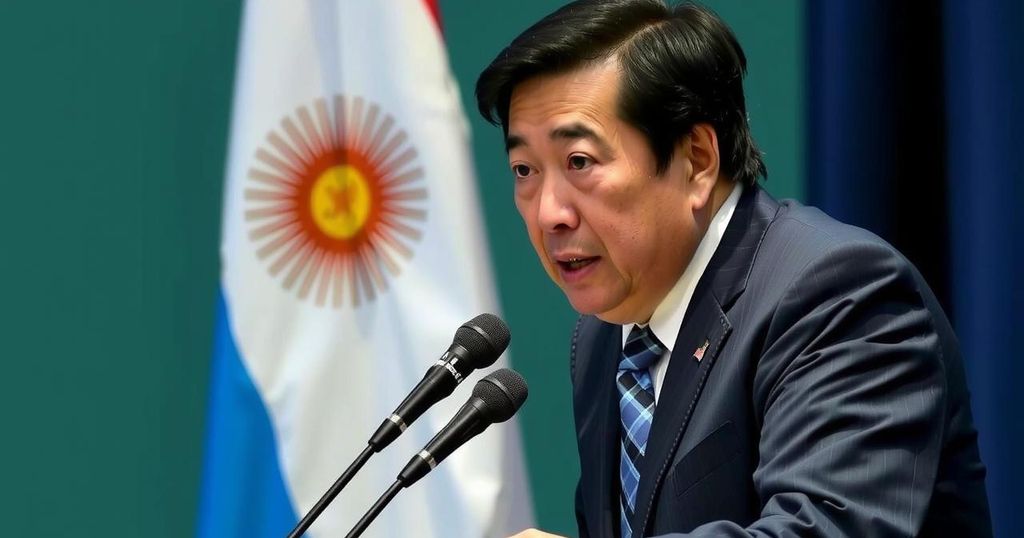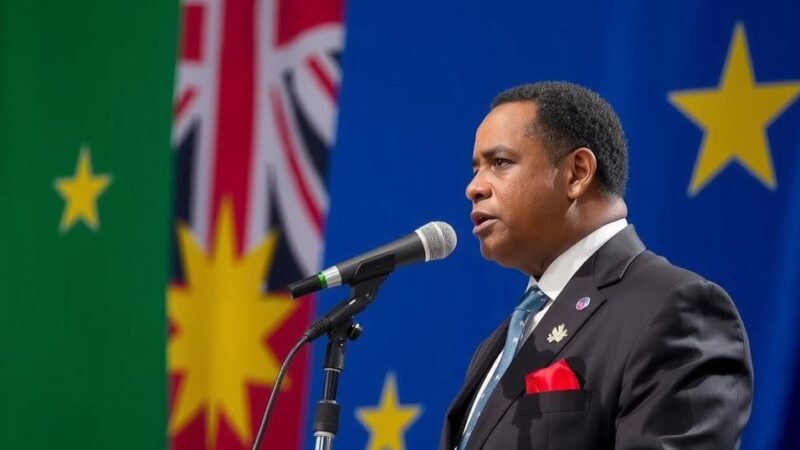Argentina’s President Javier Milei has dismissed Foreign Minister Diana Mondino after the country’s vote at the UN to support lifting the U.S. embargo on Cuba. This decision marks Argentina’s first deviation from aligning with the U.S. since Milei took office. Mondino has been replaced by Gerardo Werthein, with the Milei administration emphasizing its opposition to the Cuban government and advocating for a foreign policy based on democratic values.
In a significant political development, Argentina’s President Javier Milei has dismissed Foreign Minister Diana Mondino following the nation’s support for a United Nations resolution aimed at lifting the U.S. economic embargo on Cuba. This resolution was endorsed by Argentina during a vote where 187 nations were in favor, while the only dissenting votes came from the United States and Israel. This marked a notable deviation from Argentina’s previous foreign policy alignment, particularly given that it was the first occasion under Milei’s administration that Argentina did not align itself with U.S. and Israeli interests. In the aftermath, President Milei appointed Gerardo Werthein, the ambassador to Washington, as the new foreign minister. Official statements from Milei’s office emphasized Argentina’s strong opposition to the Cuban regime, stating that Argentina would continue to advocate for a foreign policy that condemns human rights violations globally. Previously, Mondino had played a crucial role in shaping Argentina’s international image, often intervening to ease tensions following provocative remarks made by President Milei. The U.S. trade embargo against Cuba was instituted in 1962 as a response to the Cuban revolution that brought Fidel Castro to power, aiming to undermine his socialist government. However, the embargo has failed to achieve its intended outcomes and remains a contentious issue among nations in Latin America. President Milei’s administration has indicated a fundamental shift in Argentina’s diplomatic stance, reflecting values that align with Western democratic principles, marking a departure from the prior administration’s support for Cuba. The well-documented support Cuba provided to Argentina regarding the Falkland Islands dispute further complicated the diplomatic relations between the two nations and the current Argentine government. This political maneuver suggests an increasing assertiveness in Milei’s foreign policy approach, potentially straining relations with countries that hold opposing views on human rights and governance.
The dismissal of Diana Mondino follows Argentina’s recent vote at the United Nations to support a resolution for lifting the U.S. economic embargo on Cuba. Historically, Argentina has maintained a supportive stance towards Cuba under the left-leaning Peronist government, which frequently praised Cuba’s handling of sovereignty issues, particularly regarding the Falkland Islands. The U.S. embargo, initiated in the early 1960s, seeks to leverage economic pressure to sway Cuba’s political system from socialism to capitalism and democracy, yet it has drawn criticism for failing to meet its objectives, which has led to heightened diplomatic discourse concerning human rights and international governance standards in the region.
The recent actions taken by President Javier Milei to dismiss Diana Mondino and reframe Argentina’s foreign policy illustrate a stark departure from previous diplomatic alignments. By supporting the UN resolution to lift the embargo on Cuba and publicly opposing the Cuban regime, Milei has signaled his administration’s commitment to championing Western democratic values while distancing Argentina from its historical affiliations with Cuba. This pivot may lead to new complexities in Argentina’s international relations, particularly with nations that have divergent views on governance and human rights.
Original Source: www.bbc.co.uk






